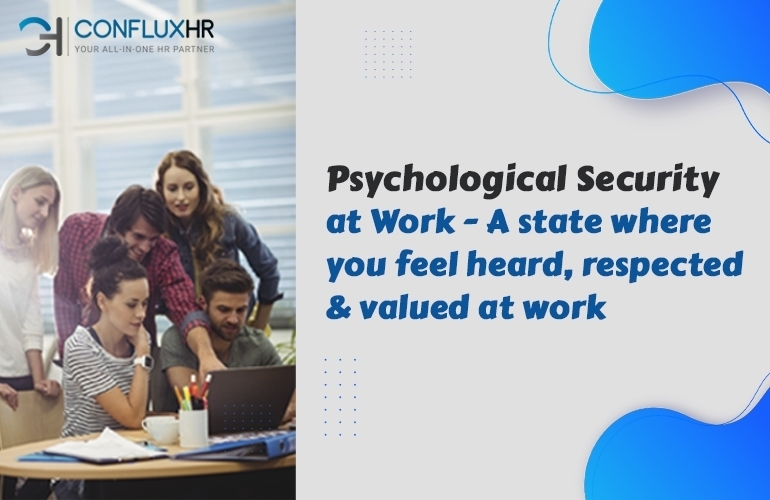The Most Fearless Organizations create a psychologically safe workplace with room for learning, growth, and innovation!
Often, while working for an organization, people feel you need to stop condemning the wrong, shouldn’t stand by their ideas, and shouldn’t do many other right things. This decision is particularly based on the lack of psychological Safety at work.
Subconsciously, psychological Safety has a significant part to play in the employee satisfaction process. It accompanies you throughout your work time and can be a big turn-off for you in your personal life.
Wondering what is psychological Safety and its importance for employees and employers? Catch up on the blog and find out about it further.
What is Psychological Safety?
Psychological Safety at work is a state where employees feel free to take risks, communicate ideas and do what is right for the organization without fearing any negative consequences. Employees want their contributions, efforts, and opinions to be taken seriously at work.
Hence, if they make a mistake or speak up about their ideas, they must not be afraid in their mind. A Workplace that makes employees comfortable fosters trust and collaboration, which enhances productivity, innovation, and efficiency.
Importance of Psychological Safety at Work
Psychological Safety at work enables employees to feel safe about taking risks, communicating ideas, and doing everything that seems like the right step for the organization. Need to know how important this aspect can be for employees? Well, the below pointers can change your mind-
- Improved Collaboration: When employees feel safe to express their ideas and opinions, they are more likely to collaborate, share knowledge, and work together to solve problems.
- Increased Innovation: Psychological Safety promotes experimentation and risk-taking, which can lead to innovative ideas and solutions.
- Better Communication: When employees feel psychologically safe, they are more likely to communicate openly and honestly with their colleagues, leading to better collaboration and fewer misunderstandings.
- Increased Trust: A psychologically safe work environment fosters employee trust, leading to better teamwork and more productive relationships.
- Improved Learning: Employees who feel safe to admit mistakes and ask for help are more likely to learn from their experiences and develop new skills.
- Higher Employee Engagement: Psychological Safety fosters a sense of belonging and commitment among employees, leading to higher engagement and motivation.
- Reduced Attrition: Employees who feel psychologically safe are more likely to remain with their organization and contribute to its success over the long term.
When we talk of workplace security, the list encompasses several financial and physical security factors, etc. However, we need to pay more heed to the psychological aspects of security.
The Way Forward
Resource management software can add much value to the process, encourage open communication without awkwardness and welcome various opinions. Often, a one-to-one discussion request feature can help you maintain transparency.
After all, someone has rightly expressed a happy place as a place where the mind is without free, and the head is held high!


